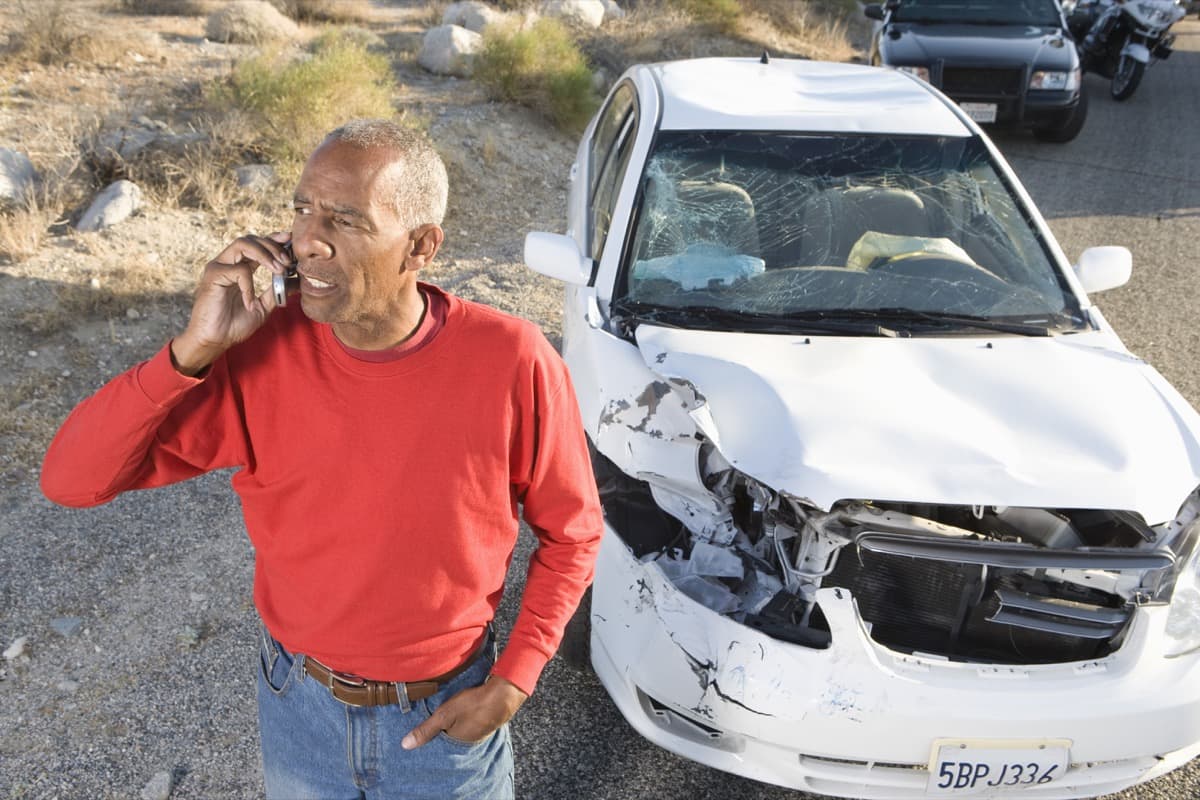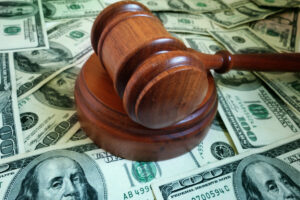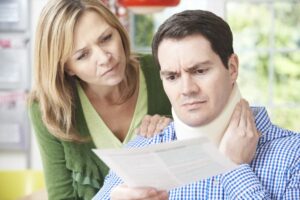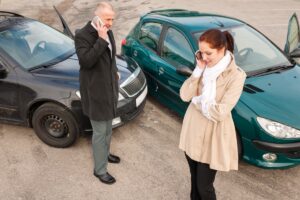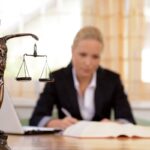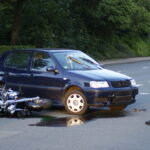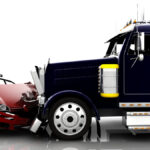Okay, quick quiz…
… what emergency situation might you find yourself in where you should “Stop, Drop and Roll”?
Of course, a fire. This simple, easy to remember rule taught to pretty much all school age children. It teaches them that if they ever find themselves surrounded by flames to Stop moving (so they don’t fan the flames), you Drop to the ground (covering their face if possible) and Roll around (to try to extinguish the fire by depriving it of oxygen).
Every year in the United States, there are over 1 million fires. However, there are over 6 million auto accidents. Now, fortunately, the vast percentage of those accidents only involve property damage. Thanks, in part, to high tech safety features built into cars these days, the cars take the brunt of the damage and protect their occupants.
That said, being in a car accident can be a highly stressful situation. And, yet, we don’t have a simple, easy to remember rule to teach us what we should do if we ever get in one.
While we don’t have clever saying to help teach you what to do after an accident, we do have some advice. And following this advice, whether you’re in a minor or major accident, can help you better manage being involved in an accident and dealing with its aftermath.
So, if you ever find yourself in an accident, here are the steps we recommend you take:
Stop
Sound familiar? Yes, it’s the first part of the fire method mentioned above. And it’s good advice if you’re in a car accident as well. Though for a different reason.
You should never drive away after you are involved in an accident. What if it’s a minor accident? Does it matter who caused the accident?
No! None of that matters. No matter what the situation, you should stop and stay where you are. It’s illegal to flee the scene of an accident and you’ll only end up making things worse on yourself by leaving.
Secure the accident scene
If the cars involved in the accident are blocking traffic and can be moved, move them to the side of the road. Otherwise, leave them where they are and make sure you get to a safe area away from traffic.
If the cars can’t be moved, you can set up flares if available. Alternatively, switch on your flashlight to stay safe while you are still in the immobilized or disabled car. The last thing you want is for your accident to cause others so securing the scene and making it as safe as possible is important.
Call 911
Either you or someone else on the scene should call 911 as soon as possible to get police and other first responders that may be needed to the scene.
Provide a Statement to the Police
The police are going to create an accident report that the insurance companies will use to figure out who’s at fault and how the claims will be handled.
Be sure to tell the police your side of the story as accurately as possible when they arrive. But avoid any speculating or confusing facts that you aren’t sure of. For example, if you’re asked whether you’ve been injured but you aren’t sure about it… say you’re not sure instead of saying no. It’s common that injuries that may have occurred due to a car accident may take time to develop and for you to feel their effects.
Also, you want to make sure you and any other occupants involved have the same story (and an accurate one at that!).
Take Pictures
Taking pictures is a useful way of recording the conditions and surroundings of the accident and the accident scene. Take photos of any visible damage to your vehicle and to others. Take photos of any road conditions (weather, signs, etc.) that may have played a role in the accident. Also, don’t hesitate to capture pictures of any physical injuries that you may have sustained.
Though, when you’re taking pictures, just make sure you don’t interfere with the police investigation.
Share and Collect Information
While the police officer investigating the accident will usually collect all the information needed, there are times when the police may take too long to respond or even fail to show up. And, even if they do show up on time, it doesn’t hurt for you to have the contact information of others involved.
Get their names, addresses, phone numbers and other necessary personal details of all those involved in the accident (both drivers and passengers) as well as any witnesses.
And be sure to get the other driver’s insurance information.
Lastly, get the name and number of the police officer investigating the accident (assuming the police show up at the scene of the accident). That information is important to help you to get a copy of the accident police report you’ll need for your insurance claim.
Contact a Car Accident Attorney
Chances are you don’t deal with car accidents every day (at least we hope not!). Car accident attorneys do. They know how things work. How to deal with insurance companies and adjusters. What to look for in the police report. What to say/what not to say. How to negotiate so you get the best outcome possible. And more. It’s recommended that you talk to an attorney before you talk to the car insurance company.
Notify Your Insurer
You should also notify your insurance company as soon as possible. And it doesn’t matter whether you were at fault or not. You need to contact them either way.
You’ve been paying for insurance so you have certain benefits in case an accident occurs. This includes Collision coverage, Towing coverage, Rental car coverage and Medical Expense coverage. Your insurance company can also help defend you if the other driver tries to pursue a claim against you.
But in order to get these benefits, you have to contact them (and not wait too long to do it) because if you wait too long, they may be able to deny you coverage.
Hopefully You Don’t Need This Info
We sincerely hope you never have to use any of the info above. But, if you’re ever in an accident, it’s important to know what to do so you don’t end up making mistakes the costs you more time or money.

